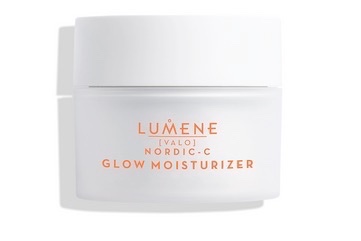Packaging
LUMENE cooperates with UPM and SABIC to launch its new biobased packaging application

Wednesday 14. June 2023 - LUMENEs new jar and the self-adhesive label originate from renewable UPM BioVerno naphtha, produced by UPM in Finland. The naphtha is processed into certified renewable polypropylene by SABIC, a global leader in the chemical industry.
Finnish beauty brand LUMENE is the first to launch a biobased packaging application with both the jar and label made with UPMs innovative wood-based material, further processed by SABIC.
LUMENEs new jar and the self-adhesive label originate from renewable UPM BioVerno naphtha, produced by UPM in Finland. The naphtha is processed into certified renewable polypropylene by SABIC, a global leader in the chemical industry, and then converted both into commonly recyclable cosmetics containers and product labels printed on UPM Raflatac Forest Film label material.
LUMENE, a Nordic pioneer in circular beauty for over 20 years, chose to use biobased raw material in order to reduce the carbon footprint of their packaging.
“By cooperating with UPM and SABIC we are taking the next important step in our sustainability journey and driving transition to renewable resources. LUMENEs ambition is to have 80% of its packaging made from recycled and biobased plastics by 2025,” says Essi Arola, Head of R&D Packaging and Sustainability at LUMENE.
“We are committed to replacing fossil-based feedstocks with renewable ones. This collaboration with LUMENE, SABIC and UPM Raflatac is an excellent example of a future beyond fossils, which is a key driver for UPM going forward,” explains Juha Rainio, Sales and Marketing Director at UPM Biofuels.
Joint effort to reduce fossil-based plastic in packaging
This pioneering cooperation, in which both LUMENEs jar and film label are made with renewable raw materials, reduces the need for fossil-based plastics by over 60 tons per year while also reducing the packagings carbon footprint significantly in 1,5 million jars annually.
The process begins when tall oil, a residue of the pulping process, is used to produce UPM BioVerno by UPM Biofuels. The wood-based renewable naphtha can be used to replace fossil raw materials in various end uses.
UPM BioVerno is then further processed by SABIC to make certified renewable polypropylene from their TRUCIRCLE portfolio. These certified renewable solutions, specifically resins and chemicals from biobased feedstock, are not in direct competition with the food chain and can contribute to reducing carbon emissions.
“We firmly believe that collaboration and innovation are driving the sustainable transformation of our industry. SABICs certified renewable materials demonstrate how our TRUCIRCLE solutions can contribute toward our shared goals for carbon neutrality. We are delighted to work with our value chain partners LUMENE and UPM Biofuels as a further step towards creating a more circular and sustainable economy for plastics,” tells Lada Kurelec, General Manager, PP & E4PS Business at SABIC.
By applying the mass balance approach1, LUMENEs jar producer is able to create commonly recyclable jars from the certified renewable polypropylene with a reduced environmental impact. This innovative package is topped with UPM Forest Film – a worlds first film label material made with wood-based biomaterials.
“Its inspiring to work with passionate brands with ambitions to go beyond fossils. LUMENE took a holistic view of the whole package – using renewable fossil-free feedstocks in the primary plastic as well as the label. Both are critical to the brand experience and integral to the circularity and climate performance of packaging,” adds Eliisa Laurikainen, Business Development Manager at UPM Raflatac.
All parties in the supply chain have ISCC PLUS sustainability certification and a verified amount of biobased feedstock is put into the manufacturing process to produce the certified renewable plastic packaging.
